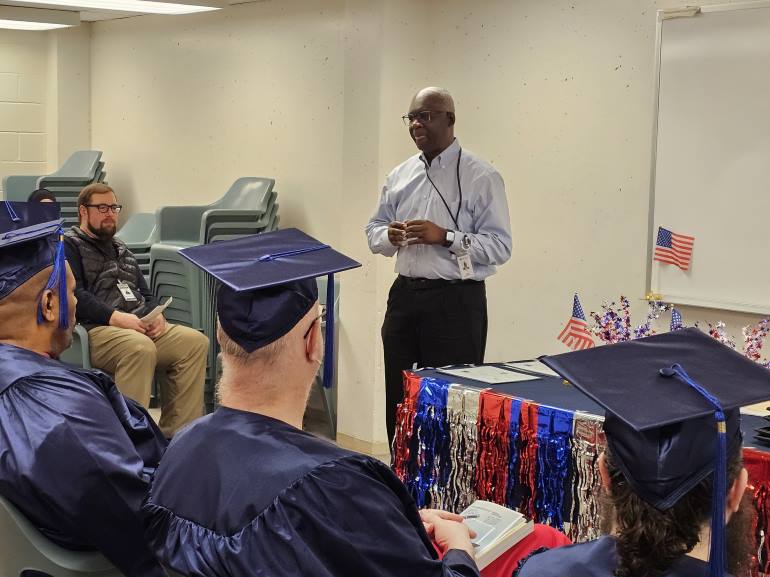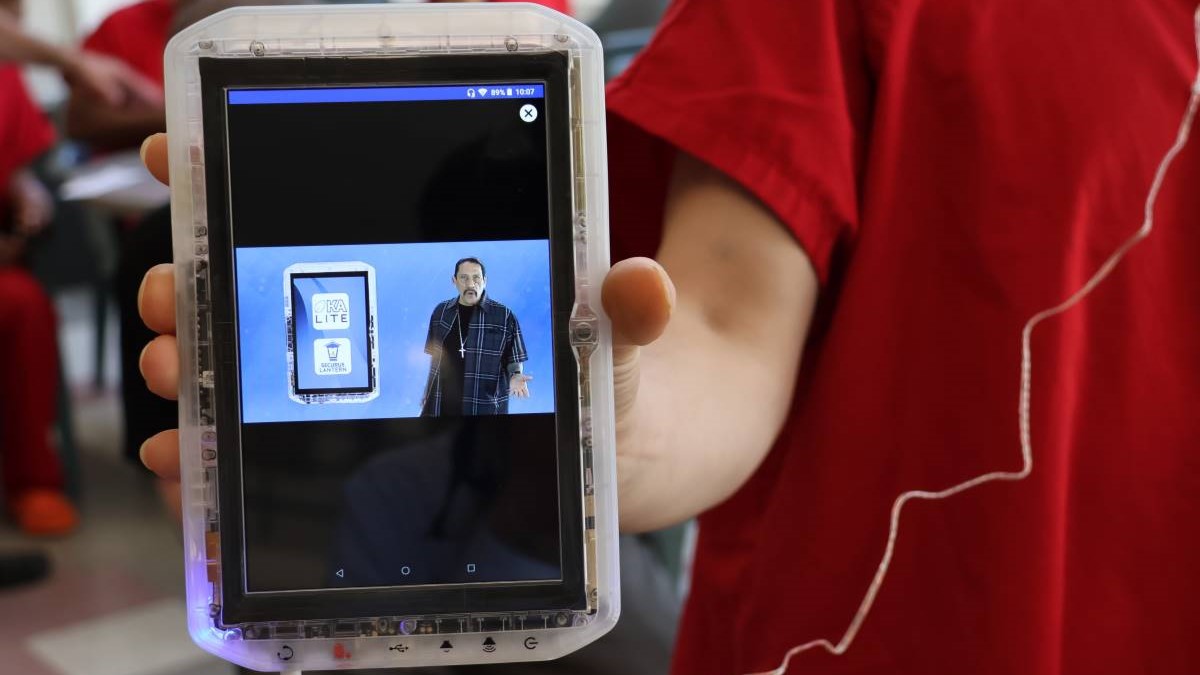Programs and services for adults in jail
While in jail
King County offers medical and behavioral health services for adults in jail. People in custody have access to many other programs and services as well. Our goal is to support personal, educational, and vocational development opportunities which help prepare individuals for a return to the community. Other activities include religious services, drug and alcohol counseling, recreation, and more. Specific programs are subject to change based on the availability of volunteers and contractors.
Health services
Adults in jail receive medical and behavioral health treatment through Jail Health Services, a division of Public Health — Seattle & King County. If you have concerns about a person's health or medications while they are in custody, contact Jail Health at:
- Email: JHSRequests@kingcounty.gov
- Phone: 206-296-1091 (please leave a voice message)
You must provide the following information:
- The person's name
- The person's booking number
- Your contact information
- What your concern is
To find a booking number for an adult in jail, please use the Subject Lookup Tool.
Release planning is available for people who need to connect with behavioral health or medical services when they leave jail.
Education
Educational programs for adults at King Conty jails may include basic education and high school completion, as well as GED preparation and testing.
Alcohol and substance abuse treatment
King County jails support programs designed to help people in jail overcome substance abuse and find treatment.
Programs for women
King County jails support programs tailored to meet the needs of women in custody. Examples have included a therapy-based creative writing program and recovery programs.
Programs and services for veterans
King County jails have historically hosted programs designed to help incarcerated U.S. military veterans with achieving near-term goals and increasing their chances of success upon release.
Online courses and transcripts
Jail residents have access to educational courses on computer tablets while in custody. The Edovo program allows loved ones, attorneys and other supporters to access transcripts that residents have earned while in custody. Visit the website below to learn more:

DAJD Director Allen Nance congratulates jail residents who have completed the Veterans Program at the Maleng Regional Justice Center in Kent.
Computer tablets
Most King County jail residents will receive a tablet after they are assigned to a housing unit. They will have access to the tablet while in jail, unless it is removed for disciplinary reasons.
There is no charge for standard features. These include thousands of e-books, podcasts, and resources to assist with substance use and mental health issues. All users also have access to 10 free games. Premium content is available for a fee through a Securus Debit account. This added content may include, but is not limited to, songs, extra games, movies, and television episodes.
Jail residents can make phone calls using the tablets. The first two calls per week are free. Residents can place more calls for a fee.

A resident at the Maleng Regional Justice Center in Kent shows the computer tablet that was assigned to him.
Other programs and services
Recreation: Adults participate in recreational activities such as arts and crafts, card games, puzzles, movies, and access to exercise.
Recreational Reading: Books are available to adults in both facilities at no cost. Books are available in each housing unit and may also be requested by kite or selected from a book cart that makes regularly scheduled visits.
Faith-based groups: DAJD supports diverse faith-based programs for incarcerated adults. Volunteers provide religious services, religious-based guidance, spiritual support, prayer, and meditation.
Learn more: Jail residents compete in art and poetry contest
Questions about programs in jail?
The information above is not an exhaustive list of programming at King County jails. Programs may change based on providers’ availability or jail staffing. To learn about current programs or how to get involved, please contact Volunteer.DAJD@KingCounty.gov.After release
The Department of Community and Human Services (DCHS) offers programs, services, and resources to help adults returning to the community after leaving detention. These include:
- Veteran services
- Mental and behavioral health
- Substance Abuse
- Housing and homelessness
- Developmental disability supports
- Legal aid
DCHS offers Diversion and Reentry Services to help people with behavioral health issues avoid jail and hospital visits.
Crisis Connections has more information and resources. Call 1-800-621-4636 or 211, or text 211.
The Emerald City Resource Guide, offered through Real Change, provides an extensive list of other community supports and programs that may benefit people who have been recently released from jail.
Interested in getting involved?
There are a variety of professional and volunteer opportunities available at the Department of Adult and Juvenile Detention.
- DAJD works only with volunteers who are affiliated with established groups such as registered nonprofits, faith-based organizations, schools, or governmental agencies. We are unable to accommodate individual volunteers working alone. To learn more about volunteer opportunities, email: Volunteer.DAJD@KingCounty.gov.
- Learn more about working with DAJD.
 Translate
Translate